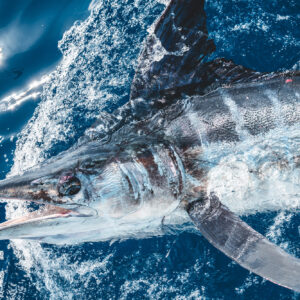Mentioning purse seining and depleted bait schools in the same sentence instantly raises the heckles of many fishers. There could be some good news on the horizon. Recently the Cook Island’s Court of Appeal upheld a challenge by locals to the way the Cook’s government permits purse seining in their waters. The Court said the government had not properly considered the impacts of purse seining on bycatch species and local fishers. The impacts of purse seining are relevant across the Pacific including New Zealand.

The Court’s references to international law and the direction to the Cook’s government to do an Environmental Impact Assessment within 12 months signals a serious commitment to higher standards. It will be interesting to see how much this decision influences discussions next time purse seining is reviewed in New Zealand.
There has been growing public opposition to purse seining in New Zealand. People are concerned about fish depletion and the impacts of seining on seabird survival. Anecdotal reports of empty seas and skies after the seiners have spent days cleaning out bait schools are common.
Why is purse seining still permitted in New Zealand waters?
The answer seems to be because the fish are there, yet it doesn’t make sense. There has been an enormous loss of fish since the 1970s. Bulk harvesting of fish delivers low value returns, coastal towns miss out on the economic benefits from visiting fishers targeting the gamefish attracted by the bait schools, and people are denied a healthy food source.
Given the Cook’s Court of Appeal decision and growing public opposition, it must be time for us to reconsider whether the bulk harvesting of our precious bait fish is in the national interest.
LegaSea acknowledges the years of effort by Aronga Mana of Te Au O Tonga and Te Ipukarea Society in Rarotonga. Their concerns for local fishers, the marine environment, and bycatch species drove their desire for change. Their effort and the resulting decision is an inspiration to Kiwis who want bulk harvesting methods, including purse seining, banned from our inshore waters.





